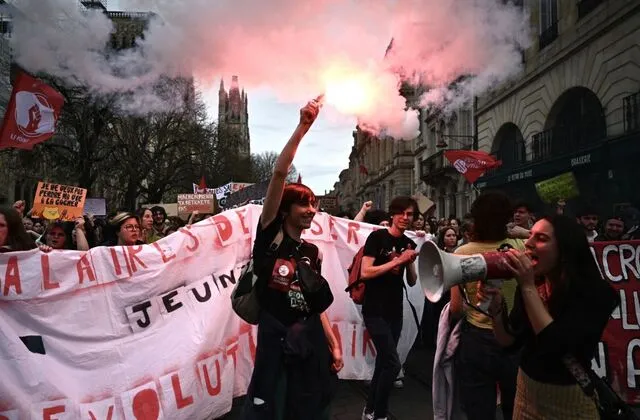Origins of the Discontent
The recent wave of protests in France can be traced back to a combination of factors, including economic, social, and political grievances. The country has been experiencing high unemployment rates, stagnant wages, and increased income inequality, leading to widespread frustration among the populace. Additionally, controversial government policies and a perceived lack of transparency have further exacerbated the situation.
Key Players in the Movement
The protests in France have been spearheaded by a diverse range of groups, including labor unions, student organizations, and grassroots movements. Some notable examples are:
- Yellow Vest Movement: Originating in 2018 as a response to rising fuel prices and proposed tax increases, the movement has since evolved into a broader anti-government crusade.
- Trade Unions: Various trade unions have joined the protests, advocating for improved working conditions, wage increases, and protection of workers’ rights.
- Student Organizations: Students have also taken to the streets, voicing concerns over education reforms, inadequate funding, and rising tuition fees.
Government Response to the Protests
Initially, the French government attempted to quell the unrest through dialogue and negotiation, offering concessions on key issues such as taxes and pension reforms. However, as protests continued to escalate, law enforcement agencies were deployed to maintain order and prevent further violence. Measures such as curfews, bans on public gatherings, and arrests of prominent activists have been implemented to restore stability.
Impact on the French Economy and Society
The ongoing protests have had significant repercussions on the French economy and society:
- Economic Strain: Businesses, particularly in the tourism and retail sectors, have suffered due to disruptions caused by the protests. Reduced consumer spending, damage to infrastructure, and negative perceptions of the country have further strained the economy.
- Social Divide: The protests have exposed deep-rooted divisions within French society, with citizens increasingly polarized along political, economic, and ideological lines.
- Global Perception: The unrest has raised concerns among international observers, with France’s reputation as a stable and prosperous democracy being called into question.
Global Repercussions and Similar Movements
The French protests have inspired similar movements across the globe, with citizens in various countries expressing their discontent with issues such as income inequality, corruption, and political stagnation. Examples include the Chilean protests, the Lebanese uprising, and the Hong Kong pro-democracy demonstrations.
Future Prospects and Possible Solutions
To address the ongoing unrest and its underlying causes, the French government must consider both short-term and long-term solutions:
- Short-term: Immediate actions, such as revisiting controversial policies, providing financial relief to affected sectors, and engaging in constructive dialogue with protest leaders.
- Long-term: Structural reforms aimed at reducing income inequality, improving social mobility, and increasing government transparency and accountability.
- These measures may include:
- Economic Reforms: Implementing policies that foster sustainable and inclusive economic growth, such as investments in education, infrastructure, and innovation.
- Tax Reforms: Overhauling the tax system to promote fairness and reduce the burden on lower-income households while ensuring adequate revenue generation for public services.
- Political Reforms: Strengthening democratic institutions and processes, promoting transparency, and encouraging citizen participation in governance.
Conclusion
The ongoing protests in France serve as a reminder of the challenges many modern societies face, as they grapple with issues such as economic inequality, political disenfranchisement, and social unrest. By addressing the root causes of these protests and implementing a combination of short-term and long-term measures, the French government can work towards restoring stability and fostering a more inclusive, prosperous, and democratic society.
